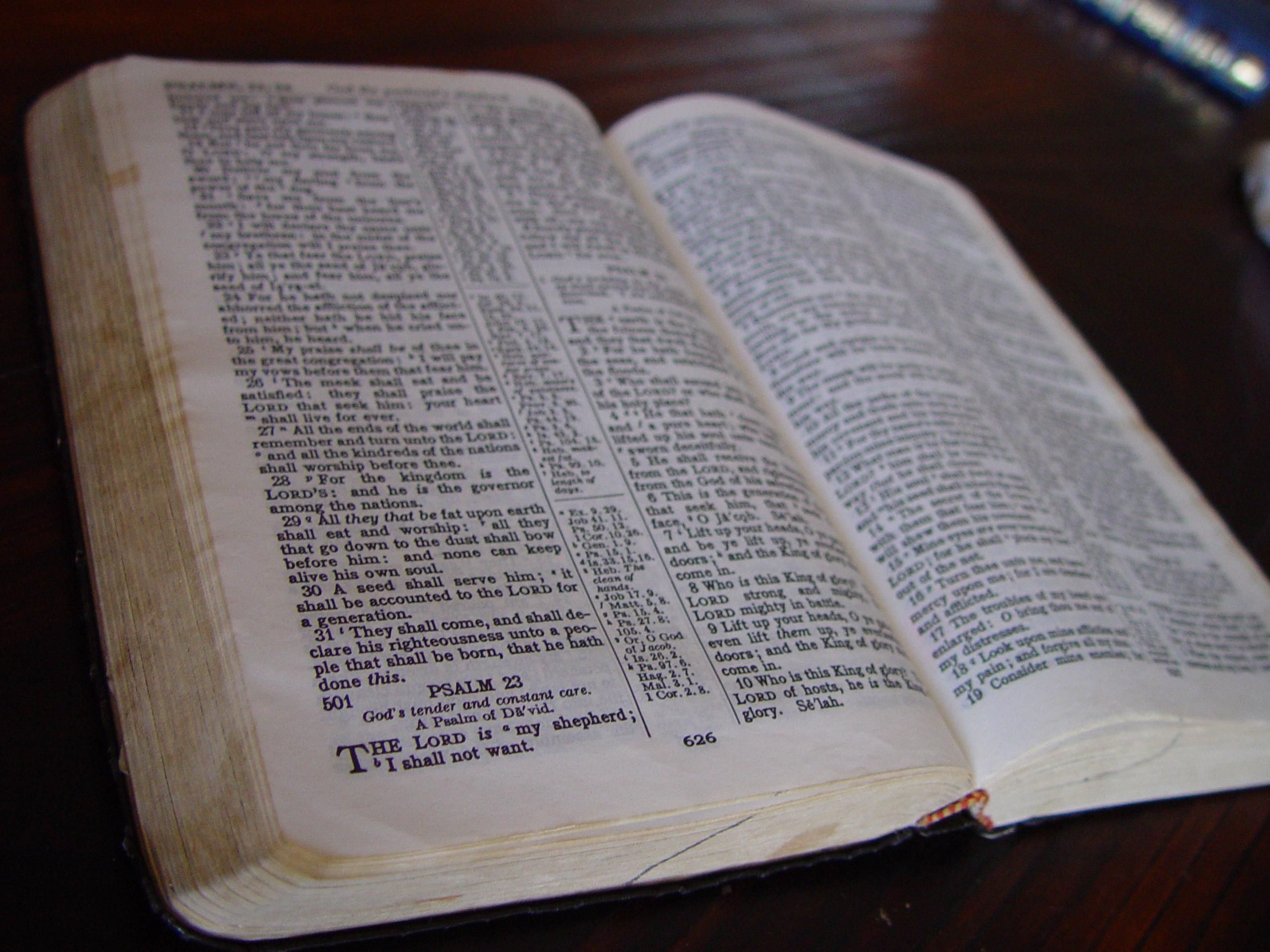2 Thessalonians 2:9-10
The coming of the lawless one is according to the working of the Adversary, with all power, signs, and lying wonders, and with all unrighteous deception among those who perish, because they did not receive the love of the truth, that they might be saved.
Apostasy always begins with neglecting the study of God’s Word. The seed which will eventually blossom into apostasy is sown in theory, not in practice. This seed of corruption is sown when a man fails to nourish his soul and forgets that man does not live on bread alone, but on every word that proceeds from the mouth of God. It is foolish to imagine that one can merely practice the Divine Word and dispense with the study of it. To do so is like tending the vine while neglecting the root, whereby we run the danger of losing the vine along with the root.
 When we fall into the habit of failing to study, we will inevitably grow indifferent to the Word. As we grow indifferent, we will consider it unnecessary to renew our awareness of all that is contained in His Word. When we cease studying, we have broken with His Word and we slowly become unfamiliar with His will for our lives and we begin to open our hearts and our minds to fraudulent teachings, stupidity masquerading as wisdom, thoughtlessness under the guise of sincerity, and lies dressed up in the parlance of Truth. Where our minds and hearts have now become vacant and void of His Word, these other principles take up residence and occupy the space where the Word once richly dwelt.
When we fall into the habit of failing to study, we will inevitably grow indifferent to the Word. As we grow indifferent, we will consider it unnecessary to renew our awareness of all that is contained in His Word. When we cease studying, we have broken with His Word and we slowly become unfamiliar with His will for our lives and we begin to open our hearts and our minds to fraudulent teachings, stupidity masquerading as wisdom, thoughtlessness under the guise of sincerity, and lies dressed up in the parlance of Truth. Where our minds and hearts have now become vacant and void of His Word, these other principles take up residence and occupy the space where the Word once richly dwelt.
Give us this day our daily bread. It is only a daily association with His Divine Word and Teachings which will serve to protect us from associating with falsehood and that which will corrupt and eventually destroy our souls. I don’t believe we set out consciously to live contrary to Godly principles, but once we take even the slightest step on to the erring path, we are wont to travel there more regularly. Therefore, it is critical to daily strengthen ourselves in the fountain of the Divine Word and root ourselves in its teachings. If we begin by neglecting our study of the Divine Word, it won’t be long before we are no longer interested in fulfilling it.
Psalm 119:9-11
How can a young man cleanse his way? By taking heed according to Your word. With my whole heart I have sought You; oh, let me not wander from Your commandments! Your word I have hidden in my heart, that I might not sin against You!
We must take every precaution in these most treacherous of times to guard our paths in accordance with the Word of God. Only by way of diligent study of the Divine Word will we acquire the understanding and the life required to conscientiously fulfill all that we have learned.
1 John 2:3-5
Now by this we know that we know Him, if we keep His commandments. He who says, “I know Him,” and does not keep His commandments, is a liar, and the truth is not in him. But whoever keeps His word, truly the love of God is perfected in him. By this we know that we are in Him.
(To be continued . . .)









5
Daily reading of scripture should be the habit of every Man of the West.
5
As I read The Benedict Option, it’s easy to see how as we have pulled the Word from the public sphere we are falling faster away. Timely post.
Excellent post.
The Ironic part is that really reading and attempting to understand the scriptures, and the culture that it represents, even if done as a philosophical exercise by an unbeliever, brings one closer by far to the word of god… at the extreme end of the spectrum, the agnostic gains an even deeper knowledge of god than the believer.
Frankly, if there is a god, I think he will forgive the agnostic that does all they can to learn and follow him and his word without being capable of faith. By their acts shall he know them as his?
“Frankly, if there is a god, I think he will forgive the agnostic that does all they can to learn and follow him and his word without being capable of faith. By their acts shall he know them as his?”
I understand that the agnostic, so-called, claims that he simply “doesn’t know” but remains open to the idea that G-d exists. In reality it is just one more example of suppressing that which he knows to be true, while secretly hoping it is really not. The agnostic attempts to put himself forward as more respectable version of the atheist when there are really no differences between them or anyone else who refuses to come to a knowledge of the truth which will set them free. It’s not that the agnostic does not know, it’s that the agnostic, like so many others, does not want to know; since knowing might lead him to the conclusion that he is morally responsible to and obligated to serve Someone outside himself. This idea is anathema to most men.
God is waiting for man to come to his senses all by himself and man is expected to achieve recognition of G-d through the use of his own intellect (which was given to him by G-d). The appeal is not to faith as much as it is to reason. Man only need make a proper use of his reasoning intellect and to free his mind from any emotional bias in order to find G-d with certainty. In other words, men deny G-d not just because He cannot be perceived by the senses, but because he can only be detected by reasoning … and reason no longer finds G-d because it makes no sincere effort to do so. Most men’s minds are not all that keen to find G-d, as the existence of such a Supreme Being is most inconvenient to his desires and propensities.
“The wrath of God is being revealed from heaven against all the godlessness and wickedness of people, who suppress the truth by their wickedness, since what may be known about God is plain to them, because God has made it plain to them. For since the creation of the world God’s invisible qualities—his eternal power and divine nature—have been clearly seen, being understood from what has been made, so that people are without excuse.”
“For although they knew God, they neither glorified him as God nor gave thanks to him, but their thinking became futile and their foolish hearts were darkened. Although they claimed to be wise, they became fools and exchanged the glory of the immortal God for images made to look like a mortal human being and birds and animals and reptiles.”
“Furthermore, just as they did not think it worthwhile to retain the knowledge of God, so God gave them over to a depraved mind, so that they do what ought not to be done.” (cf. Romans 1)
G-d’s perspective is that men inherently know Him, but deny Him. G-d’s perspective is that men are not ignorant of the truth, but are adept at suppressing it. The atheist and the agnostic often tout their intellect as the reason they can’t or won’t believe, thereby demonstrating how stunted and warped their intellect really is. A favorite Bible commentator of mine put it this way:
“If it were as uncomfortable for the human mind to accept the existence of certain forces and laws of nature as it is for him to accept such concepts as “God” and “God’s moral law,” than the principles of science would be denied just as emphatically as is God in this world of physical desire.”
This series was adapted from and should be attributed to Rabbi Shimshon Rafael Hirsch (1808-1888).
Rabbi B